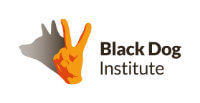Autism is a lifelong, neurodevelopmental condition, impacting social interaction, communication, interests, behaviour, and sensory sensitivity. Autistic people can experience a wide range of challenges relating to making and maintaining personal relationships, day-to-day functioning, their mental health and study or occupational demands. Digital interventions offer mental health information, advice, and support for autistic clients and their support people.
Why use digital resources with autistic clients?
Digital mental health interventions can be readily accessible, useable and engaging interventions for autistic people. Digital interventions listed on eMHPrac and Head to Health are available anytime, are free or low cost, and have an evidence base. Various digital interventions have been developed to meet the needs of autistic people with limited use of language or sensory sensitivities. Some interventions are gamified to enhance engagement.
Online interventions might also circumvent the stress faced by autistic people associated with meeting a health practitioner in person. For example, there is no need for a client to focus on social interactions within an online program, reducing the demands of interpreting facial expressions and body language or adapting their behaviour to meet social norms.
How to use digital tools with autistic clients
Digital mental health interventions can be prescribed as self-management tools or utilised in combination with support from a therapist, health professional or support worker. Digital tools can be integrated into sessions with a health practitioner or offered as homework tasks between sessions, wait-list support options, or ongoing self-management tools after discharge from a service.
Digital interventions offer psychoeducation, social skills training, activities of daily living skills, treatments for mental health conditions like anxiety and depression, online peer support and parenting skills for autistic people, their families and support people.
Top tips when using digital tools with an autistic client
- All interventions work best when the client is engaged collaboratively in their mental health treatment. Work out with the client what their goals are, how they feel about using an online tool or program, the type of program that they would feel comfortable using (an app, a phone service, or online program) then suggest an appropriate resource.
- Be sure to check that the tool or program that you recommend is safe and appropriate for your client. Give the resource a quick scan to check. Consider your client’s language skills, sensory sensitivities, or any other barriers to using the intervention.
- Attempt to sell the resource – clients can pick up how you might feel about an intervention. If you can communicate that it might really help, the client might be more likely to give it a go.
- Consider registering a client with an online program or downloading an app with them in session, if they feel comfortable to do so.
- Allow them to work out a routine or a time in the week when they will use the resource – a bit like setting time aside for an appointment with you.
- Involve a support person to remind and assist them to use the online tools. Be sure to check if this is appropriate, that the client feels comfortable with this arrangement and provides consent for you to do so.
- Download or print out parts of the program/tool that you might want to point out or remind them about and integrate this into sessions.
- An autistic person might require additional time after using a tool to transition back to other tasks. Be sure to educate any support people or parents (with your client’s consent) not to schedule completion of the digital intervention right before they need to go to the supermarket!
- Work with the client and/or their support people to resolve any barriers to use of the digital intervention and make sure to check in about their progress.
Digital Tools and Resources
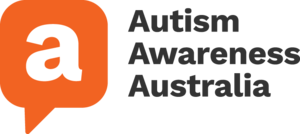
Autism Awareness Australia
https://www.autismawareness.com.au/
Autism Awareness Australia was founded to improve the lives of Australians on the autism spectrum and their families, connecting them with free, credible information, resources and tools. Their website includes the “What’s Next?”, a digital tool to navigate the first year after diagnosis with autism for individuals and families.
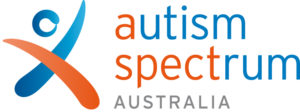
Autism Launchpad
http://www.autismlaunchpad.org.au/
The Autism Launchpad is a website developed by Autism Spectrum Australia to support young Australians with autism and their family through their transition into adult life. The website provides information, strategies, and personal stories on coping with stress, social life, and maintaining good health to assist young people with Autism or Asperger’s and their families whatever their abilities.
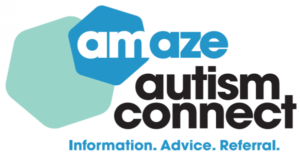
Autism Connect
https://www.amaze.org.au/autismconnect/
1300 308 699
Autism Connect is a national autism helpline supporting autistic people, their families, carers, health professionals, and the broader community. They provide expert information over the phone, email and webchat on many areas including autistic identity, diagnosis support, education, employment, strategies, referrals and more. Autism Connect also provides translating and interpreting services to speak with advisors in a language other than English.
Apps

Autism Apps
https://www.autismapps.org.au/
Autism Apps is a website developed by the Autism Association of Western Australia providing a catalogue of apps and websites supporting parents, teachers, and individuals with autism. They provide information and advice on how to effectively use technology to support autistic individuals.

The Allen Adventure
https://bullyingnoway.gov.au/resources/early-childhood-to-year2
Available on Apple and Android devices.
The Allen Adventure is an app and online suite of resources from Bullying. No Way! for young people aged 0 to 8 years. The app tells the story of Allen, the new kid in class who is a young alien visiting Earth. Allen wants to fit in and make friends, but he discovers it’s not always that easy! Through the interactive app young children learn social and emotional skills, how to make friends and get along with others.

Secret Agent Society
https://www.sst-institute.net/SAS-SG
The Secret Agent Society is an online service supporting users to understand social encounters. Their Small Group Program digital program provides small group social skills and emotion training for families. The program includes self-paced training, training resources, peer support groups, interactive sessions, and progress reports to track individual and group progress. The program is paid and facilitators costs might be covered under various types of funding for some families.

Healthy Mind
https://www.healthymind.org.au/#
An online Easy Read tool by Black Dog Institute, Healthy Mind is designed to help people with intellectual disabilities to recognise and regulate their thoughts and feelings. The program includes a range of modules that can be accessed in any order, providing information to help users learn about a chosen topic and activities to practice what has been learned.
Resources for Parents and Carers
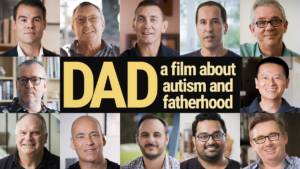
Dad Film
Dad Film is a documentary following the experiences of twelve Aussie dads as they navigate the world of parenting and autism. The video was created by Autism Awareness Australia to share stories of success, struggle, and family from dads of children on the autism spectrum to learn from and support one another.

Positive Partnerships
https://www.positivepartnerships.com.au/
Positive Partnerships is a national project from the Australian Government Department of Education, Skills and Employment, connecting families, educators and communities with resources to strengthen positive outcomes for young people of the autism spectrum. Their website includes various resources including workshops, webinars and online modules for parents, carers and school staff, Aboriginal and Torres Strait Islanders, and CALD people to advocate for and support young people with Autism.
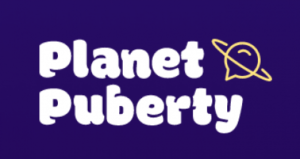
Planet Puberty
https://www.planetpuberty.org.au/
Planet Puberty is a digital suite of resources providing parents and carers of children with intellectual disability and/or autism with the latest information, strategies and resources for supporting their child through puberty. Co-designed with adults with intellectual disability and/or autism, the program provides information on a range of topics including body, feeling good, relationships, keeping safe, identity and more.
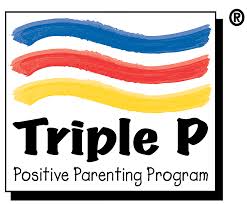
Triple P – Stepping Stones
https://www.triplep-parenting.net.au/qld-uken/triple-p/
Triple P is a free online parenting program designed to support parents and carers of children up to 16 years old. Their services include the Stepping Stones program, a specially-tailored parenting tool to help parents of children aged 2 to 12 manage problem behaviour and developmental issues common in children with disability.



